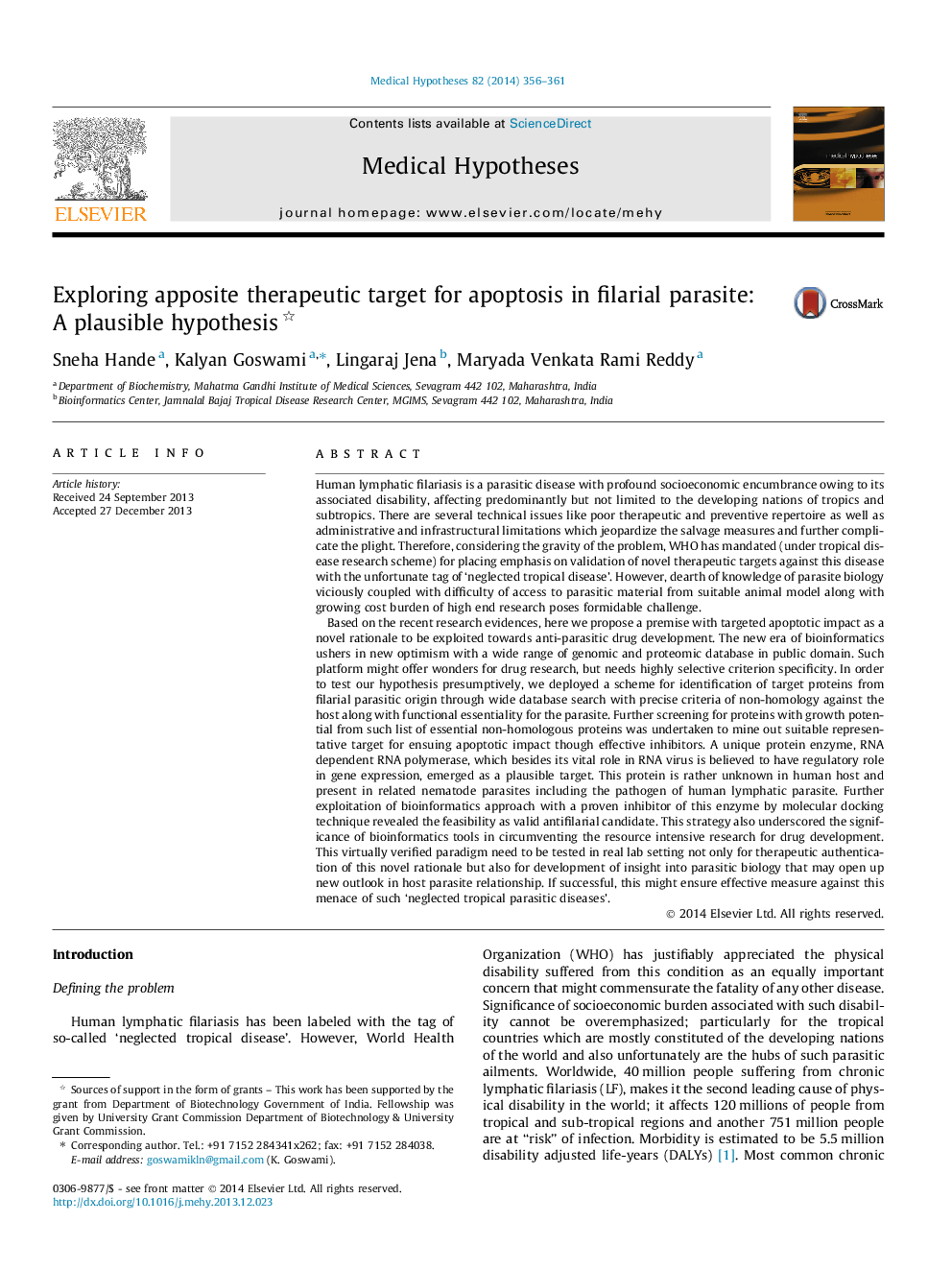| Article ID | Journal | Published Year | Pages | File Type |
|---|---|---|---|---|
| 5811862 | Medical Hypotheses | 2014 | 6 Pages |
Abstract
Based on the recent research evidences, here we propose a premise with targeted apoptotic impact as a novel rationale to be exploited towards anti-parasitic drug development. The new era of bioinformatics ushers in new optimism with a wide range of genomic and proteomic database in public domain. Such platform might offer wonders for drug research, but needs highly selective criterion specificity. In order to test our hypothesis presumptively, we deployed a scheme for identification of target proteins from filarial parasitic origin through wide database search with precise criteria of non-homology against the host along with functional essentiality for the parasite. Further screening for proteins with growth potential from such list of essential non-homologous proteins was undertaken to mine out suitable representative target for ensuing apoptotic impact though effective inhibitors. A unique protein enzyme, RNA dependent RNA polymerase, which besides its vital role in RNA virus is believed to have regulatory role in gene expression, emerged as a plausible target. This protein is rather unknown in human host and present in related nematode parasites including the pathogen of human lymphatic parasite. Further exploitation of bioinformatics approach with a proven inhibitor of this enzyme by molecular docking technique revealed the feasibility as valid antifilarial candidate. This strategy also underscored the significance of bioinformatics tools in circumventing the resource intensive research for drug development. This virtually verified paradigm need to be tested in real lab setting not only for therapeutic authentication of this novel rationale but also for development of insight into parasitic biology that may open up new outlook in host parasite relationship. If successful, this might ensure effective measure against this menace of such 'neglected tropical parasitic diseases'.
Related Topics
Life Sciences
Biochemistry, Genetics and Molecular Biology
Developmental Biology
Authors
Sneha Hande, Kalyan Goswami, Lingaraj Jena, Maryada Venkata Rami Reddy,
